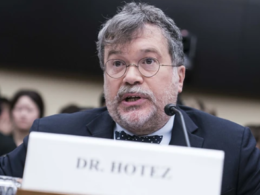the health strategist
multidisciplinary institute
Joaquim Cardoso MSc.
Chief Research and Strategy Officer (CRSO),
Chief Editor and Senior Advisor
August 23, 2023
What is the message?
Physicians, although a small minority, are spreading medical misinformation, particularly regarding COVID-19, across popular social media platforms.
This misinformation poses a significant challenge due to doctors’ status as trusted health communicators and the broad reach they enjoy on these platforms.
A study, conducted by the University of Massachusetts Amherst, highlights the urgent need to address this issue as physicians’ false claims can undermine public trust, especially concerning critical matters like vaccine efficacy and safety.

One page summary:
A recent study scrutinizes the prevalence of medical misinformation propagated by physicians, with a focus on COVID-19-related misinformation. While a small fraction of doctors engage in spreading false claims, the study reveals that their reach is significant, raising concerns due to their status as trusted health messengers on social media.
The research underscores the potential detrimental impact of physician-initiated misinformation, particularly given the critical role doctors play in public health communication and patient guidance.
The study, conducted by the University of Massachusetts Amherst, assessed data from January 2021 to December 2022, examining medical misinformation communicated by physicians across popular social media platforms and news sources.
It discovered that misinformation encompassed topics such as vaccines, medication, masks, and conspiracy theories.
Notably, vaccine misinformation was the most prevalent, with a staggering 80% of physicians falsely claiming that COVID vaccines are ineffective.
While the level of misinformation propagated by physicians paralleled that of other sources, the study underscores the pivotal role doctors play as trusted health advisors.
Physicians’ misinformation undermines public trust, especially as they were initially considered the most reliable sources of vaccine information. The study also highlights the substantial reach of medical misinformation, with Twitter being the primary communication platform, where 71.2% of offending physicians spread false claims.
The study points to the challenges of regulating professional speech and addressing misinformation spread by physicians.
Despite calls from entities like the Food and Drug Administration and the American Medical Association to combat medical misinformation, regulatory pathways remain elusive due to resource limitations and legal hurdles. As a result, the study anticipates the persistence and potential escalation of misinformation dissemination.
This study adds to the mounting concern about medical misinformation’s impact on public health. A separate survey found that misinformation is affecting clinical practice, with doctors reporting that half of the information patients bring in is false.
Physicians recognize the responsibility to counter misinformation but also support consequences for those who perpetuate false claims. This includes measures such as warnings, fines, temporary license suspension, and even permanent license revocation for repeat offenders.
DEEP DIVE

This summary was written based on the article “How common is medical desinformation spread by physicians?” published by Patient Engagement Hit.
To read the full article, access: https://patientengagementhit.com/news/how-common-is-medical-misinformation-spread-by-physicians?utm_source=nl&utm_medium=email&utm_campaign=newsletter







